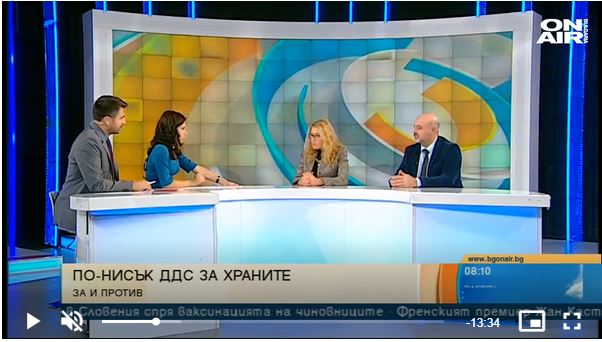WITHOUT VAT REDUCTION PRICES WILL GO UP
Reducing VAT on food is one of the demands of the industry, which will be put before the new government.
"We believe that the time has come to decide to reduce VAT on food. We are one of three countries in the EU without a differentiated rate, in most countries it is between 5 and 8%. Even the richest countries use this element as social policy in the last 1-2 years. Our proposal is for an anti-inflationary measure that can enter immediately," said the director of the Food and Drink Association Yana Ivanova in the studio of BG on air.
The clarification he made is that with the reduction of VAT, food will not become cheaper.
"Prices are rising gradually, our members are artificially holding them at their own expense. Electricity, raw materials such as sugar and wheat have risen sharply. When raw materials become more expensive, this cannot be at the expense of producers," Ivanova said.
She stressed that 30-35% of food producers are in the gray sector and the reduction of VAT will encourage them to "light up" their business.
"By reducing VAT, fraud will be reduced. We have seen this effect in tourism. VAT revenues from tourism are not less than the previous year, despite the reduction in the rate. They have achieved this effect of leaving the gray sector," stressed Yana Ivanova.
The same effect is expected by the director of the Association of Fishery Producers Yordan Gospodinov.
"We have 2,500 water bodies, there are 750 in the BFSA register. Most of the fish is sold directly and cheaper in shops and restaurants, without being subject to control and taxes. One company has one employee, who supposedly produces 20-30 tons of fish himself, which is unrealistic. The sector needs to be clarified, we need invoices. There are many people who are willing to sell at low prices without issuing invoices, which is detrimental to the state," Gospodinov stressed.
He stressed that the effect will be felt by both workers and the state treasury.









